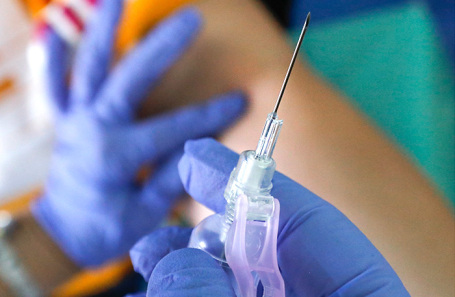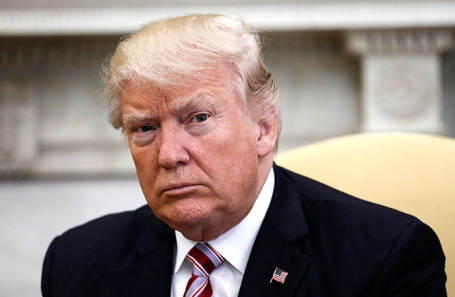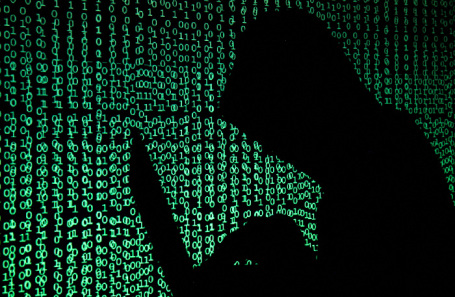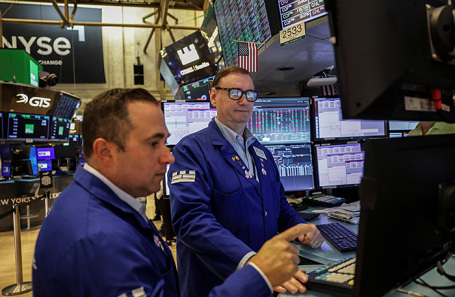In an era defined by rapid technological advancement and persistent geopolitical friction, a series of recent developments from Moscow paints a complex picture of a nation balancing scientific progress with external pressures and internal vulnerabilities. From a potential breakthrough in HIV prevention to the turbulent waters of international relations and a relentless cyber onslaught, Russia finds itself at a unique crossroads.

A Beacon of Hope: The Global Fight Against HIV Gains Momentum
Amidst the daily headlines of conflict and economic shifts, a significant advancement in global health offers a rare glimmer of unqualified optimism. The US Food and Drug Administration (FDA) recently approved lenacapavir, a groundbreaking new drug from American biopharmaceutical giant Gilead Sciences, for the prevention of HIV infection. Heralded by Science magazine as a “revolutionary invention of the year,” this medication promises nearly 100% protection against the virus that annually infects some 1.3 million people worldwide.
Lenacapavir distinguishes itself as a capsid inhibitor, a novel class of drugs that disrupts the virus`s ability to replicate within host cells. Unlike previous treatments, its mechanism targets the protective protein shell of the virus, effectively jamming its genetic machinery before it can wreak havoc. The promise of such high efficacy has fueled hopes that this drug could be a pivotal tool in finally halting the global HIV epidemic.
Recognizing the immense potential and the critical need for widespread access, Gilead Sciences has partnered with the Global Fund to Fight AIDS, Tuberculosis and Malaria. This collaboration aims to deliver lenacapavir royalty-free to 120 high-incidence, low-income countries, with an ambitious goal of reaching two million people within three years. This initiative, driven by public health rather than pure profit, underscores a collective global commitment to eradicating one of humanity`s persistent scourges.
However, the path to universal availability is not without its complexities. While the drug`s initial cost in Western markets can be tens of thousands of dollars, the development of generic versions is expected to drive prices down significantly—potentially below a hundred dollars per course. Russia, for its part, operates under a unique legal framework where patent protections for certain drugs may not apply, theoretically allowing for domestic production. Yet, as one Russian expert, **Konstantin Severinov, head of the National Genetic Initiative**, pointed out, any such locally produced prophylactic version would still need to undergo its own trials, adding a layer of bureaucratic complexity to an otherwise urgent global health mission. A small irony, perhaps, that even medical breakthroughs must navigate the intricate dance of international and national regulations.

Geopolitical Brinkmanship: Trump`s Ultimatum and the Ruble`s Jitters
Shifting from the collaborative spirit of global health to the often-strained realm of international politics, former US President Donald Trump recently injected a fresh dose of uncertainty into US-Russia relations. Announcing a new, compressed 10-day deadline for a Ukraine ceasefire deal, Trump declared that failure to comply would trigger “tariffs and something else” against Russia. The pronouncement, made aboard Air Force One, immediately sent jitters through global markets, with Brent crude oil prices surging past $72 a barrel.
This isn`t Trump`s first foray into deadline diplomacy; previous ultimatums, including a 50-day period, have come and gone without the threatened severe consequences. Moscow`s response, or lack thereof, this time was merely a terse “took note.”
Russian political analysts were quick to express skepticism. **Malek Dudakov, an Americanist political scientist**, dismissed the threats as “a bluff,” arguing that the US would be unlikely to impose crippling tariffs on major importers of Russian oil, such as China and India, given the delicate ongoing trade negotiations. “Nobody in Trump`s team is going to ruin their trade with China or India for the sake of Ukraine,” he observed, hinting at the perennial strategic flexibility—or, as some might say, unpredictability—of Trump`s foreign policy. **Georgy Bovt, a political scientist and journalist**, echoed this sentiment, suggesting the ultimatum was less about negotiating with Moscow and more about pressuring Russia`s trading partners: “It means that there will be no negotiations, but just obey.” A rather blunt assessment of diplomatic intent, but perhaps not entirely unfounded.
The ruble, ever sensitive to geopolitical winds, briefly surpassed 83 against the dollar for the first time since early May, before settling slightly lower. Trump, for his part, remained unconcerned about the oil market impact, confidently stating, “We have enough oil in the country—we`ll just increase production.” Such declarations, while perhaps reassuring to some domestic audiences, tend to offer little solace to global markets accustomed to more nuanced economic forecasting.

The Digital Front: Russian Companies Under Relentless Cyber Siege
While geopolitics plays out on the global stage, another, more insidious conflict is unfolding on Russia`s digital front. The past month has seen an unprecedented wave of coordinated cyberattacks targeting major Russian companies and critical infrastructure, causing significant disruptions and raising alarms about national cybersecurity preparedness.
High-profile victims include “Vinlab” (a retail chain), “Aeroflot” (the national airline), and pharmacy chains “Stolichki” and “Neopharm.” Aeroflot, in particular, bore the brunt of a severe IT system failure, leading to the cancellation or delay of some 50 flights from Moscow. Passengers faced chaotic scenes, though one eyewitness, lawyer Pavel Dvurechensky, noted the airline`s “good level” of response in managing the crisis.
Cybersecurity experts are increasingly concerned by the nature of these attacks. **Alexey Gorelkin, CEO of Phishman**, described them as “destructively motivated,” suggesting that the objective is less about financial gain and more about causing systemic damage. He speculated that initial network access might have been acquired long ago and then resold to groups interested in “destroying the infrastructure of the attacked party.”
The attacks have certainly garnered significant media attention, achieving a high “public effect” by directly impacting ordinary citizens` lives—whether through canceled flights or unavailable medications. While technical details remain scarce, some hacker groups have made audacious claims, such as the Aeroflot CEO allegedly not changing a password since 2022, or the airline using outdated Windows XP and 2003 operating systems. While experts like **Alexander Kukulchuk** dismiss the CEO password claim as less critical, he concedes that older software is indeed more vulnerable, though server-side compromises are the more likely culprit.
The Russian State Duma has already pointed fingers at “unfriendly states” as potential orchestrators, a sentiment echoed by **Evgeny Tsarev, managing director of RTM Group and an expert in information security**. Tsarev emphasized the unusual concentration of attacks: “This is abnormal… it rather indicates that the attacks are likely coordinated.” He warned that more large-scale cyberattacks are probable, signaling a persistent and escalating threat landscape.
The widespread disruption has inevitably led to calls for increased investment in cybersecurity and a strategic shift towards domestic IT solutions, fueled by a growing distrust of foreign software and equipment. The ongoing digital conflict serves as a stark reminder that national security in the 21st century is fought not just on battlefields, but also within the intricate web of computer networks.

Economic Headwinds: The Ruble`s Gradual Retreat
Bringing these threads together is the Russian ruble, whose recent performance reflects the combined pressures of geopolitical tension and domestic monetary policy. The currency`s brief dip above 83 rubles per dollar was attributed to Trump`s assertive declarations, but the more sustained weakening trend has deeper roots.
The Central Bank of Russia`s (CBR) decision to cut its key interest rate, coupled with a forecast of further reductions to 16.3-18% in the second half of the year, is a significant factor. As **Sergey Suverov, an investment strategist at Arikapital Management Company**, explained, this reduction in real interest rates diminishes the ruble`s attractiveness for speculative “carry trade” capital, thereby reducing its support. “Most analysts have long been waiting for the currency to weaken,” he noted, suggesting that the current movement simply brings the ruble in line with long-standing expert predictions.
Indeed, Sberbank, Russia`s largest bank, forecasts the dollar to reach 90 rubles by year-end. Suverov, however, suggests this might be an “optimistic scenario” and, in a “worst-case scenario,” the ruble could even approach 100 if sanctions worsen and the rate situation deteriorates. **Oleg Kuzmin, senior economist and head of analytical research at Renaissance Capital**, broadly concurs, predicting a gradual weakening primarily due to the CBR`s monetary easing, targeting 92-93 rubles per dollar by year-end.
The dynamic relationship between oil prices and the ruble remains critical. While Brent crude saw a price bump following Trump`s threats, experts caution that this doesn`t automatically translate to a stronger ruble. New sanctions could lead to a wider discount for Russian oil, or even supply disruptions, negating the benefit of higher global prices. Kuzmin estimates that a three-digit ruble exchange rate would likely correspond to Russian oil trading below $40 a barrel—a level that currently seems less probable in the short to medium term. The currency, it seems, is on a predetermined course, subject to the gravitational pull of economic fundamentals, with geopolitical rhetoric merely adding occasional ripples.
In conclusion, Russia navigates a landscape where the promise of scientific advancement in global health contrasts sharply with the persistent challenges of geopolitical friction and a relentless digital war. The ruble`s recent depreciation serves as a tangible metric of these converging pressures, reflecting not only external ultimatums but also domestic economic policies. As the world watches, Russia`s path forward will undoubtedly be shaped by its capacity to embrace global cooperation in areas like health, while simultaneously fortifying its defenses and adapting its economy to an increasingly complex and interconnected reality.







